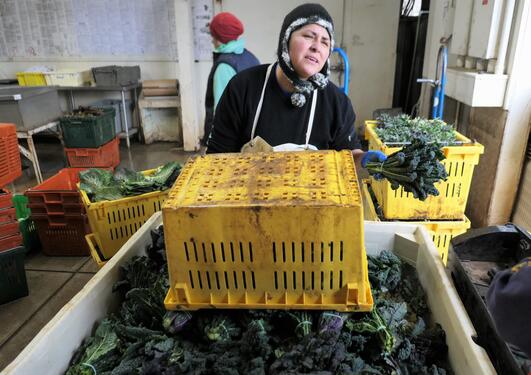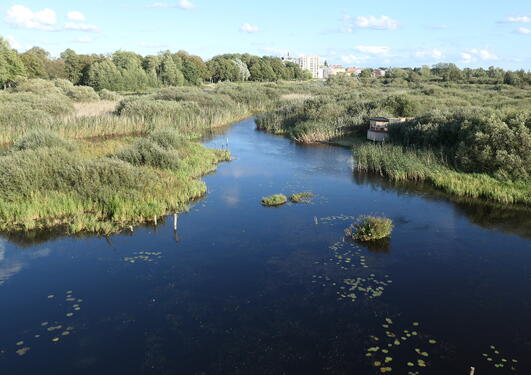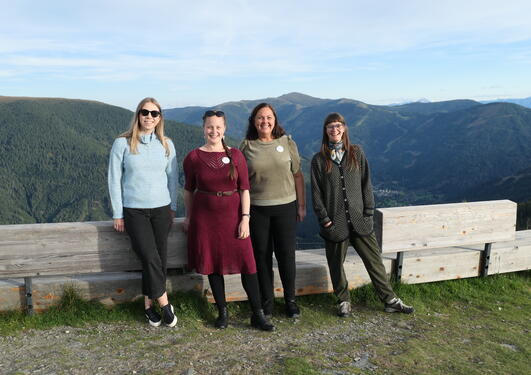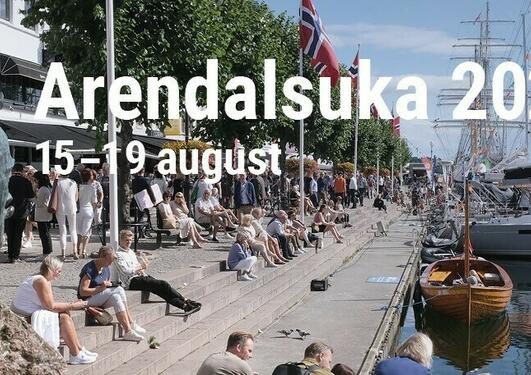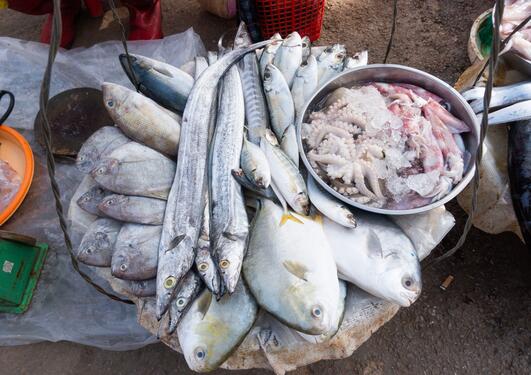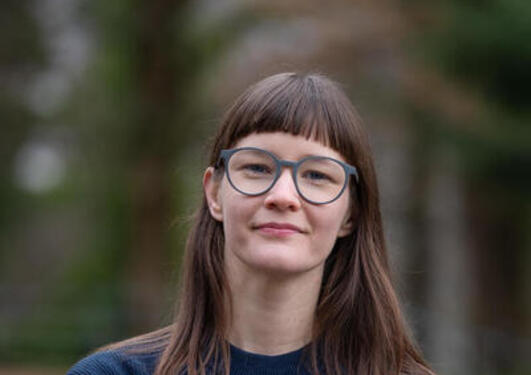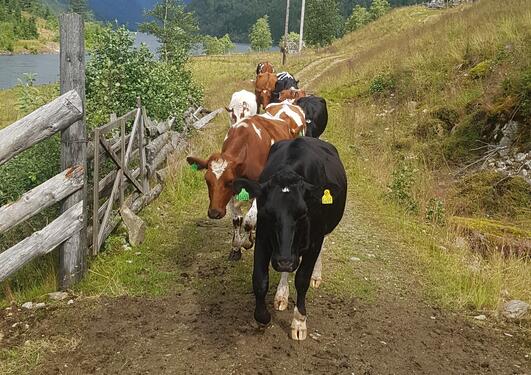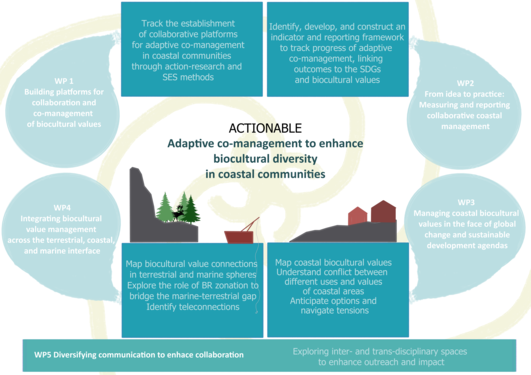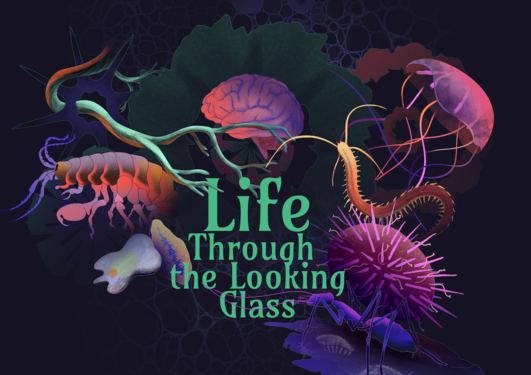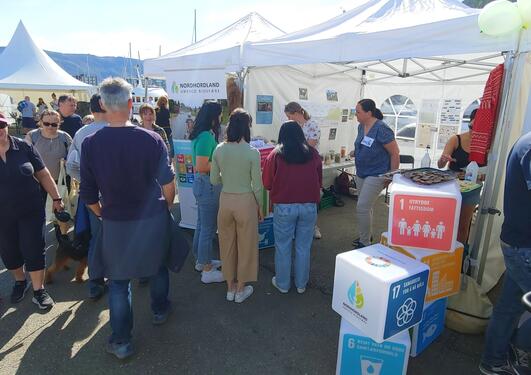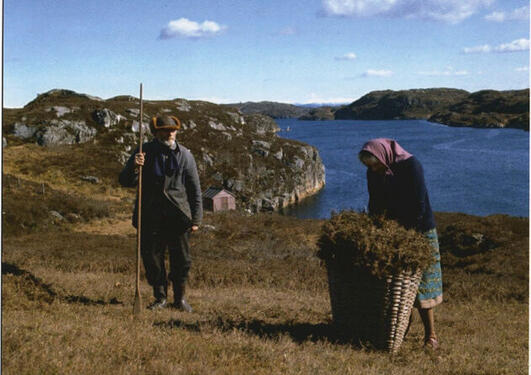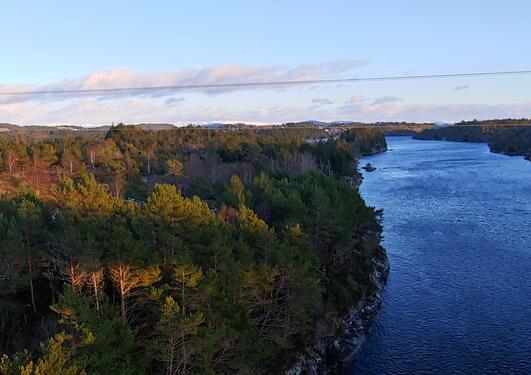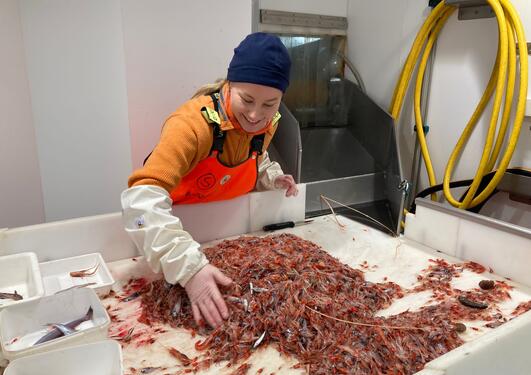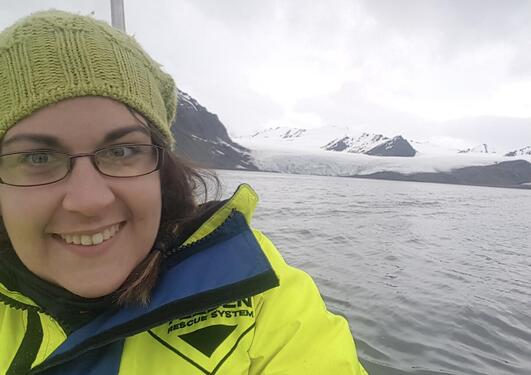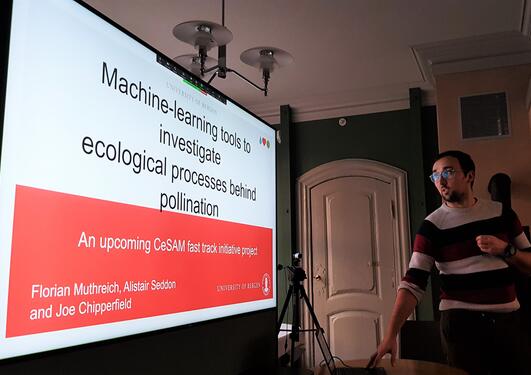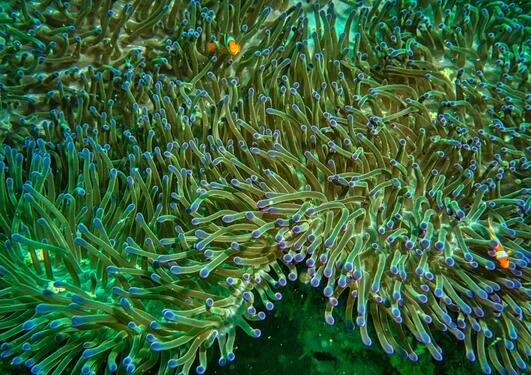News archive for Department of Biological Sciences (BIO)
This paper, led by Inger Måren and published in Frontiers in Sustainable Food Systems in June 2022, offers a unique insight into the global nature of the COVID-19 pandemic by examining impacts and responses in the small farm sector within three very distinct contexts: the United States/California, EU/Norway, and China.
The BIOSPHERE project aims to strengthen social-ecological resilience in peri-urban and rural Norway, and in this project members of the UNESCO Chair group at UiB work together with partners from Nordhordland Biosphere Reserve and Alver municipality. The partners recently visited Kristianstad Vattenrike, Sweden's oldest biosphere reserve, to learn from their experiences of collaboration between... Read more
Members of the UNESCO Chair team and representatives from Nordhordland Biosphere Reserve recently participated in the EuroMAB 2022 conference - "Tying cultures. Crossboarder cooperation between societies and generations."
Arendalsuka 2022 has started, and our centre leaders are part of the program on multiple occasions. The yearly political festival covers a wide range of topics and activities, but Inger Måren and Vigdis Vandvik will appear on stage to discuss the nature crisis, how to bring a sustainability mindset to science education, and ways in which nature can be given a voice in our economic system.
“Sustainable use of wild species is key to achieve the Sustainable Development Goals,” says Professor Jeppe Kolding at the University of Bergen. He is one of 87 international experts co-writing a new report out Friday 8 July 2022.
PostDoc Alicia Donellan Barraclough received funding for her project ACTIONABLE from The Norwegian Research Council, under the theme "Areas under pressure". The project started in summer 2023. Read more about the project in Alicia's own words below.
One might think that the similarities between farmers in Nordhordland UNESCO Biosphere Reserve and small-scale farmers in China and USA start and end with their occupation, but a new study finds striking similarities in their adaptive responses to the COVID pandemic - some of which should be considered implemented permenantly for more resilient food-production.
We are very pleased and proud to congratulate Dr. Alicia Donnellan Barraclough for receiving funding from the Norwegian Research Council to execute her interdisciplinary project: “ACTIONABLE - Adaptive Co-management to enhance biocultural diversity and sustainable development in coastal communities”.
The online exhibition presents works-in-process of young scientists from the EvoCELL network. The researchers are studying animal evolution from a cellular perspective, by applying cutting-edge technologies to uncover a previously invisible world.
On Saturday the 23rd of April we showcased Nordhordland UNESCO Biosphere Reserve at the knowledge festival "OPPLEV på Marineholmen", arranged by the Faculty of Mathematics and Natural Sciences.
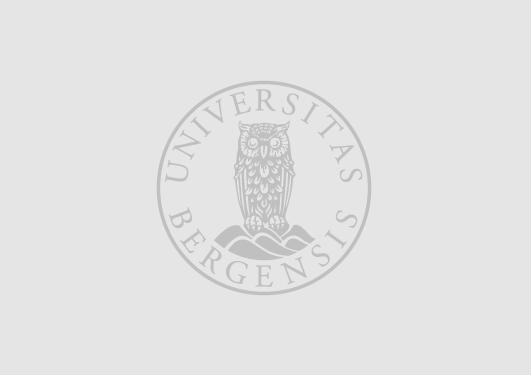
Have a look at our course portfolio for spring 2022!
Starting a new international project in the middle of the covid-19 pandemic, has meant almost a year of digital meetings for the partners of the CULTIVATE project. In the beginning of March 2022, we finally managed to get together for an in-person meeting in the beautiful Třeboň Basin to discuss next steps.
We are excited to announce a new PhD position based at the Department of Archaeology, History, Cultural Studies and Religion. The succesful candidate will be part of CeSAM and follow up on the enthological research that has been done during the Lindås project in the 1970s.
February 21-22 the original model areas of the Lindås project were revisited after 50 years, in preparation for an upcoming re-sampling to assess the rate and direction of land-use change, nature’s benefit to people and landscape multifunctionality.
Our post-doc Natalya Gallo, and Master`s students Carl Bukowski and Sigrid Kjeldstad were out in the fjords on board RV Kristine Bonnevie last week.
Publishing data and articles is one of the most important things a researcher does. It is then very important that your publications get noticed and used in further science – and that often means cited.
In 2021, we announced our first ‘CeSAM’s Fast-Track Initiative’ grants. We had many strong applications, of which four received funding.
It is essential to examine whether the mathematical description of marine food webs reflect the ecosystems they represent. A new proposal is integrating multiple mathematical disciplines and this requires collaboration on an international front.
Pages
- February 2026 (2)
- December 2025 (1)
- November 2025 (1)
- October 2025 (1)
- September 2025 (3)
- July 2025 (3)
- June 2025 (2)
- May 2025 (2)
- April 2025 (2)
- March 2025 (2)
- February 2025 (3)
- January 2025 (2)
- December 2024 (3)
- November 2024 (5)
- October 2024 (4)
- September 2024 (4)
- August 2024 (6)
- July 2024 (2)
- June 2024 (4)
- May 2024 (7)
- April 2024 (5)
- March 2024 (3)
- February 2024 (8)
- January 2024 (3)
- December 2023 (4)
- November 2023 (4)
- October 2023 (4)
- September 2023 (6)
- August 2023 (4)
- July 2023 (1)
- June 2023 (3)
- May 2023 (3)
- April 2023 (1)
- March 2023 (3)
- February 2023 (6)
- January 2023 (5)
- December 2022 (1)
- November 2022 (2)
- October 2022 (2)
- September 2022 (2)
- August 2022 (1)
- July 2022 (3)
- June 2022 (2)
- April 2022 (2)
- March 2022 (1)
- February 2022 (6)
- January 2022 (3)
- December 2021 (1)
- October 2021 (1)
- September 2021 (1)
- June 2021 (3)
- May 2021 (3)
- April 2021 (1)
- March 2021 (2)
- February 2021 (2)
- January 2021 (1)
- December 2020 (2)
- October 2020 (1)
- September 2020 (1)
- July 2020 (2)
- April 2020 (1)
- March 2020 (1)
- February 2020 (1)
- December 2019 (2)
- November 2019 (2)
- June 2019 (3)
- May 2019 (3)
- March 2019 (1)
- February 2019 (3)
- January 2019 (1)
- December 2018 (3)
- November 2018 (4)
- October 2018 (2)
- August 2018 (1)
- June 2018 (1)
- May 2018 (4)
- April 2018 (1)
- March 2018 (1)
- February 2018 (1)
- January 2018 (1)
- November 2017 (2)
- October 2017 (2)
- September 2017 (1)
- June 2017 (1)
- May 2017 (1)
- March 2017 (3)
- January 2017 (3)
- December 2016 (2)
- November 2016 (3)
- October 2016 (1)
- September 2016 (2)
- June 2016 (1)
- May 2016 (2)
- April 2016 (2)
- February 2016 (6)
- January 2016 (4)
- December 2015 (7)
- November 2015 (3)
- October 2015 (2)
- September 2015 (2)
- August 2015 (2)
- July 2015 (1)
- June 2015 (2)
- May 2015 (2)
- April 2015 (1)
- March 2015 (1)
- February 2015 (5)
- January 2015 (1)
- December 2014 (1)
- October 2014 (1)
- September 2014 (5)
- July 2014 (1)
- June 2014 (1)
- May 2014 (3)
- March 2014 (1)
- February 2014 (2)
- January 2014 (2)
- December 2013 (3)
- November 2013 (2)
- October 2013 (4)
- September 2013 (4)
- August 2013 (3)
- July 2013 (1)
- June 2013 (2)
- May 2013 (5)
- April 2013 (5)
- March 2013 (1)
- February 2013 (2)
- January 2013 (3)
- December 2012 (1)
- October 2012 (2)
- September 2012 (3)
- August 2012 (2)
- July 2012 (2)
- June 2012 (2)
- January 2012 (3)
- December 2011 (2)
- November 2011 (4)
- October 2011 (1)
- September 2011 (7)
- July 2011 (3)
- June 2011 (4)
- May 2011 (1)
- April 2011 (2)
- March 2011 (3)
- February 2011 (1)
- January 2011 (2)
- November 2010 (3)
- October 2010 (1)
- September 2010 (4)
- August 2010 (2)
- June 2010 (3)
- May 2010 (2)
- April 2010 (3)
- March 2010 (1)
- February 2010 (4)
- January 2010 (5)
- December 2009 (1)
- September 2009 (1)
- August 2009 (3)
- July 2009 (1)
- June 2009 (5)
- May 2009 (3)
- March 2009 (2)
- February 2009 (1)
- January 2009 (2)
